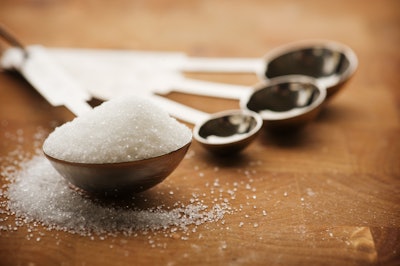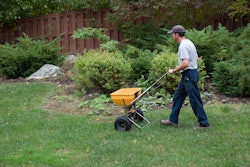
With the Internet at your clients' fingertips, it's no huge surprise that they have access to lots of lawn care information on their own. While some of that information is helpful, plenty of it is inaccurate and even problematic. Unfortunately, it's not always easy for people to know what to believe.
This is where you (as a lawn care provider) can help.
We spoke to Chris O'Bryan, owner of Limbwalker in Louisville, Kentucky, about some of the lawn care myths he's seen circulating and why they're a problem. As a lawn care provider, you can help to set some of these myths straight.
Sugar makes the grass green
Another lawn care myth that has been circulating is that sugar will make the grass greener.
"The idea is that all living things like sugar and microorganisms are no different," explains O'Bryan. "In reality, only iron can make a lawn greener. A lawn needs the right amount of iron or it will turn yellow."
Warn your clients that dumping sugar on their lawns can actually lead to fungal growth.
Dumping beer on the lawn kills fungus

There has been a trending search online for using beer on the lawn to get rid of fungi growth. It's believed that beer can act as a natural fungicide to kill spores.
"Fungi are very intelligent and also difficult to control," O'Bryan says. "Dumping beer on the lawn is not going to get rid of a lawn fungus problem."
In fact, there's some evidence that dumping beer on the lawn might cause a fungus problem. And, it can also attract insects. There's also a myth that the fermented sugars in beer can help stimulate growth (like a natural fertilizer). In reality, nothing actually works like a true lawn fertilizer with nitrogen, phosphorus, and potassium.
Salt will kill weeds
It's a really bad practice to dump salt on the lawn as it's going to harm soil health, warns O'Bryan. Clients using salt as a weed killer are likely trying to avoid more potent products. But in reality, they can end up harming their entire lawn with salt.
"Salt in the soil was the downfall of civilization for Mesopotamia," reminds O'Bryan. "We understand that people are sometimes looking for natural weed control solutions but this will do more harm than good."
O'Bryan says he has also heard of people using vinegar or clove oil on weeds. While it's true concoctions like these might burn the weed, they can also burn the grass in the process. And they aren't going to do anything to address the weeds' roots so they'll only keep coming back.
Understanding why lawn care myths are embraced
O'Bryan says that it's important to understand that most people embrace lawn care myths like these because they are in search of a natural solution. People love the idea that everyday products in their homes can be multi-purpose and also do good for their lawns. But many times, they can truly do more harm than good.
Still, O'Bryan says it's beneficial to meet clients where they're at, understanding that they just want to make good choices for their lawns. Helping clients understand that lawn care can be very beneficial when performed properly will help deter them from taking a DIY approach in the first place.
"We are a company that cares about making eco-friendly choices and about making green spaces better," O'Bryan says. "So, we can appreciate the sentiment behind some of these myths. But it also helps for us to educate people on why solutions like these aren't actually a good choice for their lawns. In the end, we want to help see them succeed with great lawn care results."









